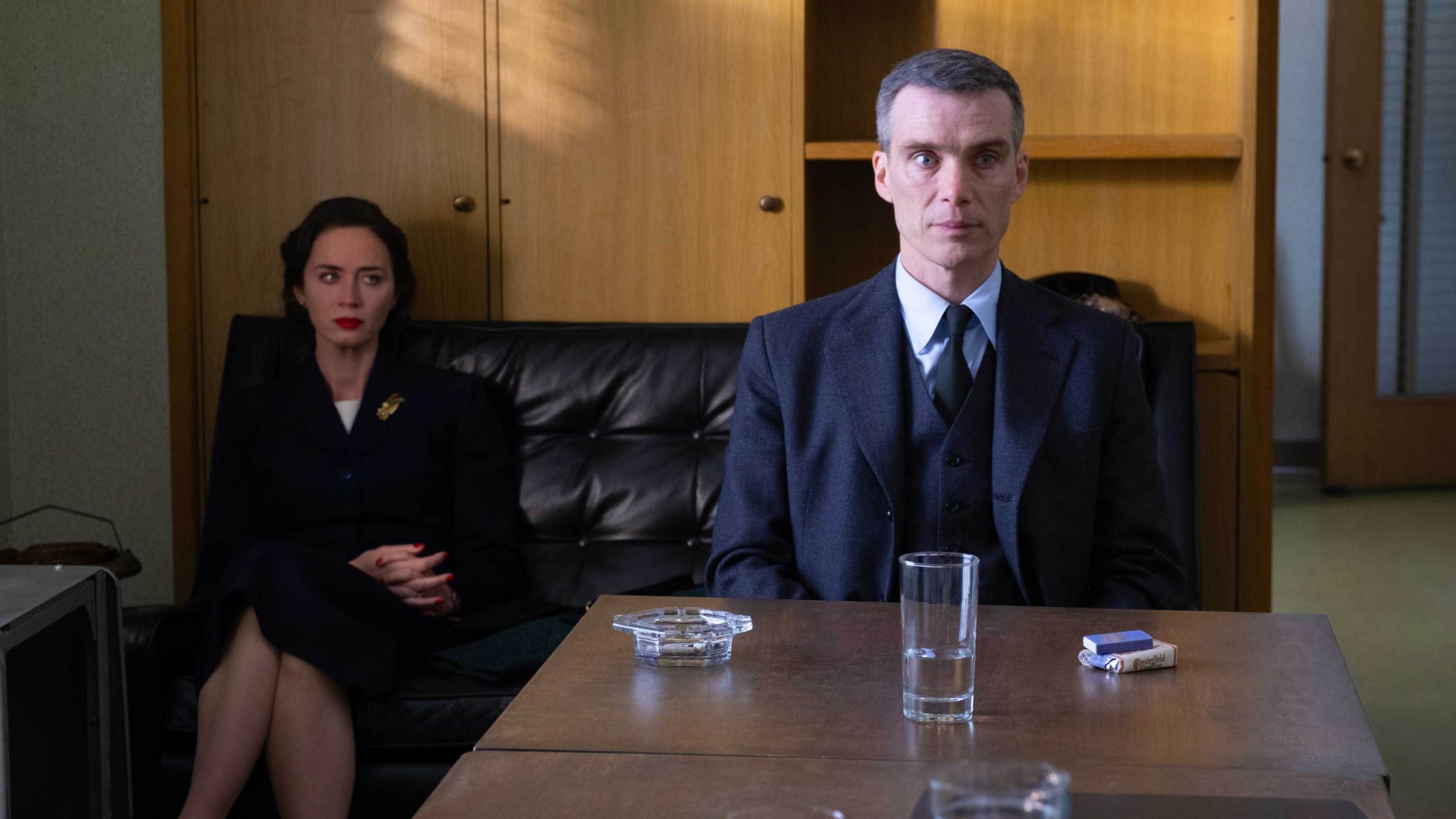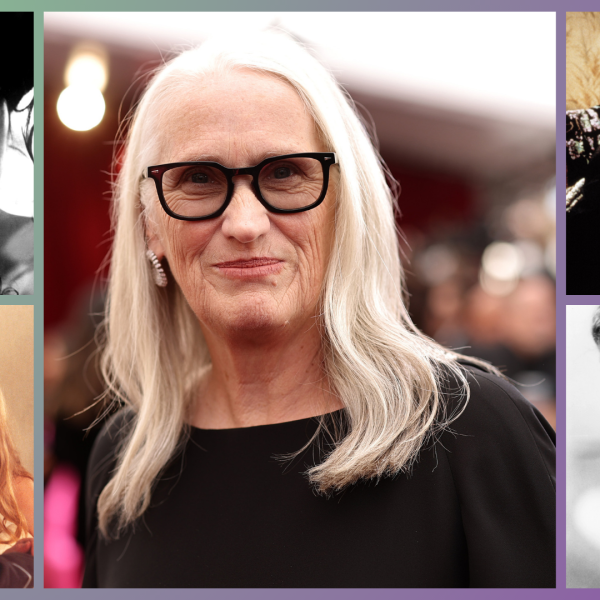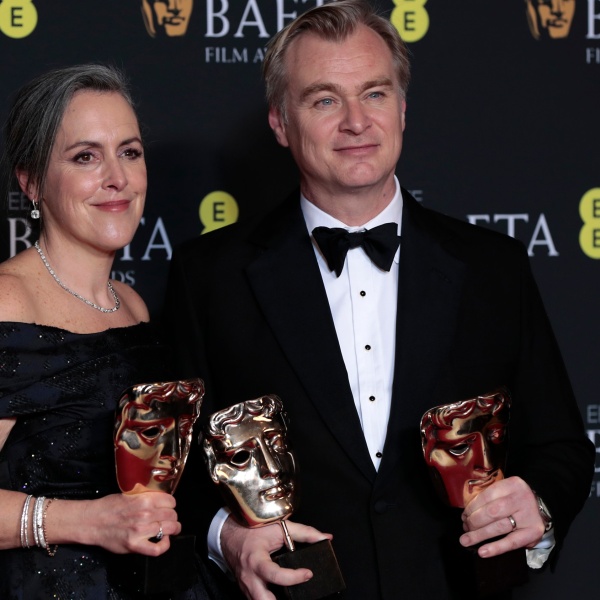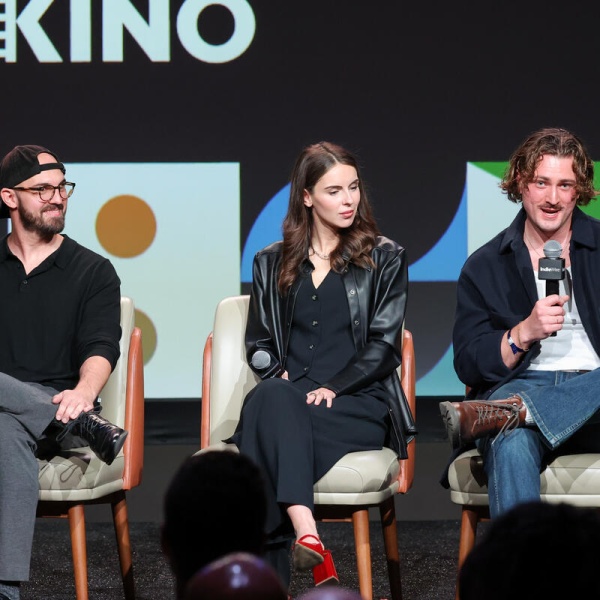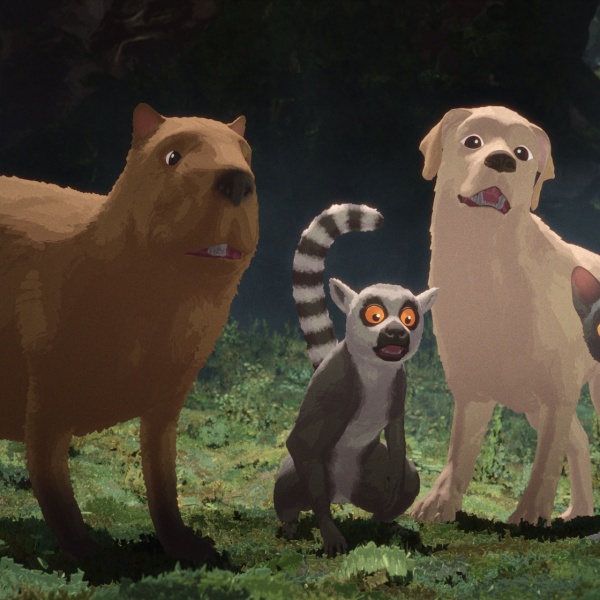This article contains IndieWire’s preliminary Best Editing predictions for the 2024 Oscars. We regularly update our predictions throughout awards season and republish previous versions (like this one) for readers to track changes in how the Oscar race has changed. For the latest update on the frontrunners for the 96th Academy Awards, see our 2024 Oscars predictions hub.
The State of the Race
It’s the season of complex narratives and existential crises, led by Christopher Nolan’s “Oppenheimer” (Universal), the early favorite, Greta Gerwig’s blockbuster “Barbie” (Warner Bros.), Martin Scorsese’s “Killers of the Flower Moon” (Apple TV+/Paramount), Ari Aster’s “Beau Is Afraid” (A24), and Celine Song’s “Past Lives” (A24).
Other contenders include Denis Villeneuve’s “Dune: Part Two” (Warner Bros.), the follow-up to his Oscar winner, Yargos Lanthimos’ “Poor Things” (Searchlight), Wes Anderson’s “Asteroid City” (Focus Features), Bradley Cooper’s “Maestro” (Netflix), Ridley Scott’s “Napoleon” (Apple TV+/Sony Pictures), David Fincher’s “The Killer” (Netflix), Emerald Fennell’s “Saltburn” (Amazon/MGM), Todd Haynes’ “May December” (Netflix), Alexander Payne’s “The Holdovers” (Focus Features), and Blitz Bazawule’s “The Color Purple” (Warner Bros.).
“Oppenheimer,” the three-hour biopic thriller about J. Robert Oppenheimer (Cillian Murphy), the “father of the atomic bomb,” offered editor Jennifer Lame numerous challenges as a non-linear, cross-cutting narrative in color and black-and-white, with cinematographer Hoyte van Hoytema’s innovative 70mm IMAX footage as the centerpiece. The film is divided into two perspectives: Oppenheimer’s journey to build the atomic bomb in Los Alamos during World War II and rival Admiral Lewis Strauss’ (Robert Downey Jr.) advocacy of further nuclear testing during the Cold War as chairman of the Atomic Energy Commission. However, the key framing devices are Oppenheimer’s hearing in 1954 to revoke his security clearance and Strauss’ Senate confirmation hearing for Secretary of Commerce in 1959. This is where Lame brilliantly excels at managing the pace and tension of people talking in rooms.
With “Barbie,” Gerwig and editor Nick Houy (“Little Women,” “Lady Bird”) navigate an unconventional structure for Barbie’s (Margot Robbie) Pinocchio-like journey to experiencing humanity. She ventures from the feminine utopia of Barbie Land to the patriarchal “real world” of Century City and Venice and then gets in a power struggle with Ken (Ryan Gosling) back in their home. Careening between artifice and reality, comedy and drama, required delicate rhythm and pacing, an overriding clarity, and cutting it for coming “in the wrong place.”
In “Killers of the Flower Moon,” Scorsese and longtime editor Thelma Schoonmaker (the Oscar-winning “The Departed,” “The Aviator,” “Raging Bull”) tackle the director’s first epic Western. It’s a historical tragedy about corruption, greed, racism, and murder, framed as the divide between beauty and degradation. The film is about the Oklahoma serial murders in the Osage Nation during the 1920s, committed after oil was discovered on tribal land. However, it focuses on the psychological implications rather than the procedural crime-solving. What’s key is the layering of the conspiracy between cattleman William Hale (Robert De Niro) and his naive nephew Ernest Burkhart (Leonardo DiCaprio) to obtain the family fortune of Burkhart’s wife, Molly (Lily Gladstone), and how it poisons any hope of prosperity for the couple and the Osage community.

“Beau Is Afraid” marks the latest collaboration between director Aster and editor Lucian Johnston (“Midsommar”), a protege of Lame’s. It’s a three-hour Oedipal odyssey about Joaquin Phoenix’s paranoid man-child. It’s absurdly surreal and hard to pin down what’s real and imagined. It’s divided into four sections, including a shape-shifting third section containing a play within the film, and concludes with a long coda in the form of a trial. The challenge for Johnston was handling pace and cohesion because each section involved a different world and set of characters along with its own rhythm and shooting style.
In “Past Lives,” editor Keith Fraase intercuts the sublime romance between childhood friends Nora (Greta Lee) and Hae Sung (Teo Yoo), who are briefly reunited online before reconciling in person in New York City after two decades. Nora and Hae Sung are never in the right place at the right time to achieve their destiny, so there’s always tension. The brilliant opening scene in the bar poses the question: Who are they? The Skype bubble provides awkward intimacy, and the masterful final long take when Nora and Hae Sung say goodbye provides the answer.
Villeneuve pushes the sensory spectacle of “Dune” even further in the more complex “Part Two,” with Paul (Timothée Chalamet) leading the nomadic Fremen into their holy war on the desert planet Arrakis. While the battle scenes are expected to dominate, Oscar-winning editor Joe Walker will have many more layers to navigate involving Paul’s growing obsession with power and revenge for the death of his father (Oscar Isaac), his love story with visionary muse Chani (Zendaya), his relationship with his mother (Rebecca Ferguson) and her powerful Bene Gesserit sisterhood, and a new opponent in Austin Butler’s bald, sword-wielding baddie, Feyd-Rautha, of the adversarial Harkonnen clan.
Lanthimos reunites with go-to editor Yorgos Mavropsaridis (the Oscar-nominated “The Favourite”) on “Poor Things,” a twisted Victorian “Frankenstein” gender-bender. It stars Emma Stone as Bela, who’s crudely resurrected from the dead by her scientist father (Willem Dafoe) with the brain of her unborn child. This results in a strange and surreal transformation from a traumatized woman to a fearless one who upends 19th-century roles and conventions. Mavropsaridis is accustomed to navigating the director’s wild shifts in tone and making them seem psychologically plausible, given the absurdities of the situations.
With “Asteroid City,” Anderson re-teams with Oscar-nominated editor Barney Pilling (“The Grand Budapest Hotel”) for an existential, sci-fi odyssey set in the mid-1950s about the precariousness of life. The multi-layered ensemble film (led by Jason Schwartzman and Scarlett Johansson) deftly intercuts the re-enactment of a surreal play that occurs in the fictional desert town of Asteroid City during a youth astronomy convention (in pastel colors and widescreen aspect ratio) with the TV broadcast of the play and its behind the scenes backstory (in black-and-white and Academy aspect ratio).

In “Maestro,” Cooper teams with Emmy-winning editor Michelle Tesoro (“The Queen’s Gambit”) to explore the love story between legendary conductor/composer Leonard Bernstein (Cooper) and actress wife Felicia Montealegre (Carey Mulligan), spanning more than 30 years, despite his leading a double life as a gay man. The teaser trailer emphasizes the strong connection they made when they first met and how difficult it was to maintain. It’s underscored by one of his signature conducting pieces: Gustav Mahler’s “Symphony No. 5 (Adagietto),” and intercuts their early romance in black-and-white with the rest of their life together in color.
As for the rest: “Napoleon” is cut by Scott’s go-to editor Claire Simpson (Oscar winner for “Platoon”), who navigates Napoleon Bonaparte’s (Phoenix) rapid rise to power from military leader to Emperor. But, in between the six battles, it’s his obsessive love story with Joséphine (Vanessa Kirby) that remains the focal point. “The Killer,” which boasts Fincher’s Oscar-winning editor Kirk Baxter (“The Girl with the Dragon Tattoo,” “The Social Network,” “The Curious Case of Benjamin Button”), explores the existential crisis of Michael Fassbender’s assassin suddenly questioning his nihilistic worldview as minimalistic noir.
In “Saltburn,” Fennell tasks editor Victoria Boydell with cutting her wicked satire of wealth and privilege at the dawn of the 21st century. It turns Oxford student Barry Keoghan into a fish out of water for a frolicking summer at the eponymous estate of aristocrat Jacob Elordi and his eccentric family. Haynes reunites with editor Affonso Gonçalves on “May December,” his black comedy of self-delusion, in which Natalie Portman’s actress visits Julianne Moore in Savannah, Georgia, to study her for a film about her tabloid sex scandal 20 years earlier.
In addition, Haynes re-teams with go-to editor Kevin Tent (nominated for “The Descendants”) on “The Holdovers,” a wacky 1970 Christmas comedy about the misadventures of a despicable teacher (Paul Giamatti) who remains at school over the holiday to supervise students unable to journey home. Bazawule tapped editor Jon Poll for “The Color Purple,” adapted from the Broadway stage musical. It re-imagines Alice Walker’s celebrated story of Black female empowerment during the early 20th century South with an ensemble cast. It’s about the empowerment of Celie (Fantasia Barrino), who escapes her hardships with music and magical realism.
Potential nominees are listed in alphabetical order; no film will be deemed a frontrunner until we have seen it.
Frontrunners
“Barbie”
“Beau Is Afraid”
“Killers of the Flower Moon”
“Oppenheimer”
“Past Lives”
Contenders
“Asteroid City”
“Dune: Part Two”
“Maestro”
”May December”
“Napoleon”
“Poor Things”
“Saltburn”
“The Holdovers”
“The Color Purple”
“The Killer”
